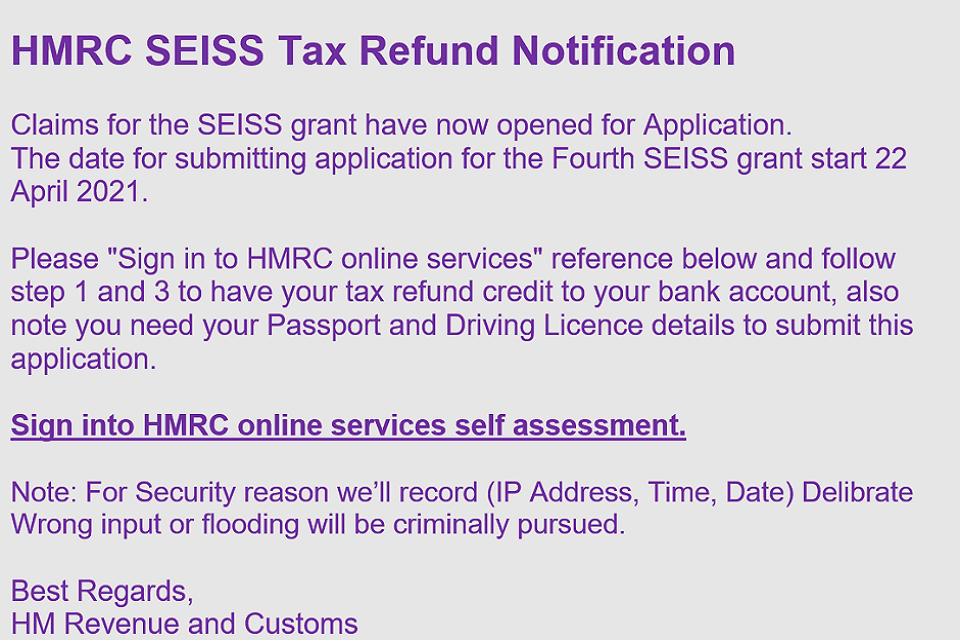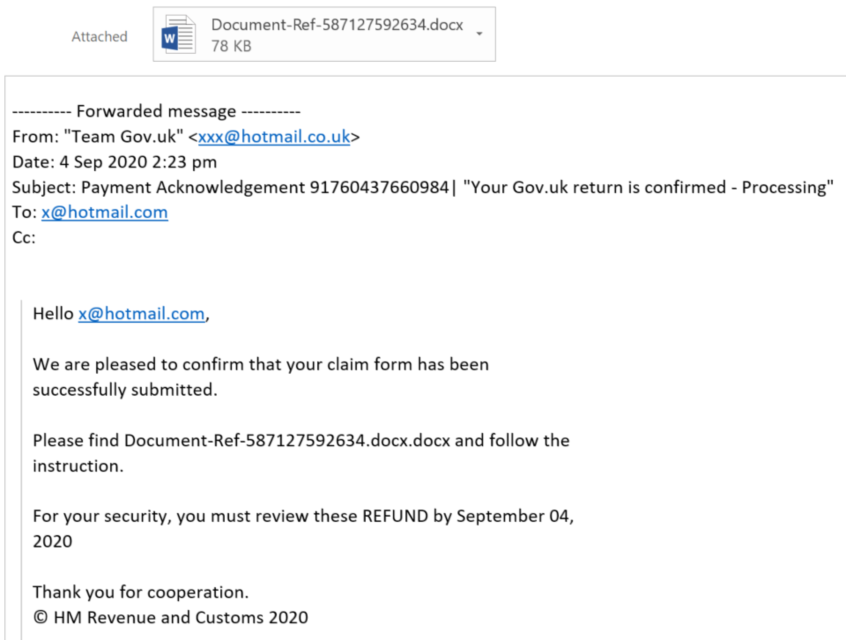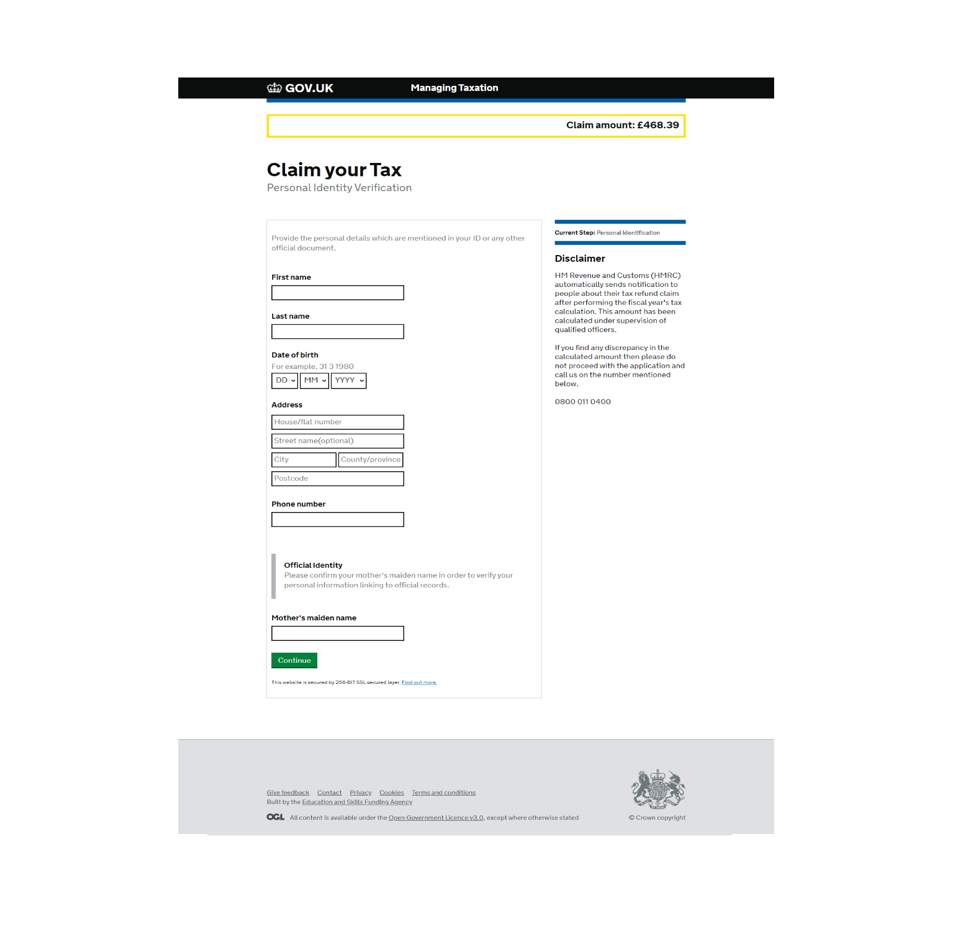How to spot a scam HMRC message and what to do if you get one
No rest for the wicked. HMRC scammers are working 24/7. With the latest SEISS applications now open, the HMRC has had to alert taxpayers, especially the self-employed, to look out for a host of scams being beamed across text and WhatsApp messages, phishing emails and suspicious phone calls.
What to do if you receive any of the following scams:
- Do not open attachments or click any links in an email or text message, as they may contain malicious software or direct you to a misleading website.
- Even if you get the same or similar scam contacts often, report them.
- Delete any emails or texts once you’ve reported them.
Coronavirus (COVID-19) scams
Email scams
HMRC is aware of a phishing campaign telling customers they can claim for the fourth SEISS grant as support during the coronavirus pandemic.
Do not reply to the email and do not open any links in the message.
The email has been issued in various formats. This is an example of the scam:

Text scams
‘Due to the new lockdown support plan’ SMS
HMRC is aware of coronavirus text scams telling customers they are entitled to funding due to the new lockdown support plan.
Do not reply to the text and do not open any links in the message.
‘COVID-19 refund’ SMS
HMRC is aware of various text scams offering a refund in connection with the COVID-19 pandemic.
Do not reply to the text and do not open any links in the message.
Tax refund and rebate scams
Email addresses
HMRC will never send notifications by email about tax rebates or refunds.
Do not:
- visit the website
- open any attachments
- disclose any personal or payment information
Fraudsters may spoof a genuine email address or change the ‘display name’ to make it appear genuine. If you are unsure, forward it to us and then delete it.
Example of a phishing email and misleading website


Text messages
HMRC will never ask for personal or financial information when we send text messages.
Do not reply if you get a text message claiming to be from HMRC offering you a tax refund in exchange for personal or financial details. Do not open any links in the message.
Send any phishing text messages to 60599 (network charges apply) or email phishing@hmrc.gov.uk then delete it.
Suspicious phone calls
HMRC is aware of an automated phone call scam which will tell you HMRC is filing a lawsuit against you, and to press 1 to speak to a caseworker to make a payment. We can confirm this is a scam and you should end the call immediately.
This scam has been widely reported and often targets elderly and vulnerable people.
Other scam calls may refer to National Insurance number fraud or offer a tax refund and request you to provide your bank or credit card information. If you cannot verify the identity of the caller, we recommend that you do not speak to them.
If you’ve been a victim of the scam and suffered financial loss, report it to Action Fraud.
The calls use a variety of phone numbers. To help us investigate, share call details on our suspicious phone call reporting form. Include the:
- date of the call
- phone number used
- content of the call
WhatsApp messages
HMRC will never use ‘WhatsApp’ to contact customers about a tax refund. If you receive any communication through ‘WhatsApp’ saying it’s from HMRC, it is a scam. Email details of the message to phishing@hmrc.gov.uk then delete it.
Social media scams
HMRC is aware of direct messages sent to customers through social media.
A recent scam was identified on Twitter offering a tax refund.
These messages are not from genuine HMRC social media accounts and are a scam. We never use social media to:
- offer a tax rebate
- request personal or financial information
If you cannot verify the identify of the social media account, send the details by email to: phishing@hmrc.gov.uk and ignore it.
Refund companies
HMRC is aware of companies that send emails or texts advertising their services. They offer to apply to HMRC for a tax rebate on your behalf, usually for a fee. These companies are not connected with HMRC in any way.
You should read the ‘small print’ and disclaimers before using their services.


